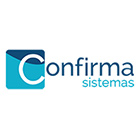Compliance
We help you with Cloud compliance
Sovereign cloud
Complies with Spanish and European regulations
ISO Regulations
Certifications demonstrating excellence and quality
GDPR
Cloud Services for your compliance with the GDPR
PCI DSS
Handle credit or debit card data with complete assurance
Zero Emissions
We are CO2 Neutral. Reduce your carbon footprint
Satisfied Customers












Certified processes in Spain
At Alhambra we are committed to providing excellent services. To guarantee this commitment, we have the most important and demanding certifications audited annually by independent firms that recognize and guarantee the excellence of each and every one of our activities, with special attention to the technological requirements that drive the business, such as the most prestigious international standards in the field of Security Management, Cloud Services, Software Development and Business Continuity.

Related Information
What is Cloud Compliance?
Cloud Compliance refers to regulatory compliance in cloud computing environments. It ensures that companies operating in the cloud comply with the laws, regulations, and standards specific to their industry, such as GDPR, HIPAA, or ISO 27001. This guarantees the protection of data stored in the cloud.
What is zero-emission cloud and how does it affect Cloud Compliance?
Zero-emission cloud refers to cloud computing services designed to minimise or eliminate carbon footprints by using renewable energy and sustainable practices. This affects Cloud Compliance because many international regulations and standards, such as ISO 14001 (environmental management), require companies to adopt sustainable practices.
Choosing a zero-emission cloud provider such as Alhambra not only helps to comply with environmental regulations, but also reinforces the company’s commitment to sustainability and improves its corporate reputation.
Why is cloud compliance important?
Cloud compliance is crucial to avoid legal penalties, ensure data security, and build customer trust. With the increase in the use of cloud services, ensuring cloud compliance has become a priority for companies that handle sensitive data.
What challenges do companies face with Cloud Compliance?
Some of the main challenges include:
- Adapting their operations to multiple regulations depending on geographical location.
- Ensuring the security and privacy of data stored in the cloud.
- Implementing monitoring and auditing tools to ensure ongoing compliance.
- Choosing a cloud service provider that offers solutions compatible with specific regulations.
How to choose a cloud provider that complies with regulations?
When choosing a cloud service provider, make sure that:
- It offers certifications such as ISO 27001, SOC 2, or GDPR compliance.
- It provides regular security audits and clear agreements on data privacy.
- It guarantees transparency in information management and storage.
- It offers tools to monitor and verify regulatory compliance.
What are the best practices for maintaining cloud compliance?
Some best practices for ensuring regulatory compliance in the cloud are:
- Implement clear data management policies.
- Conduct regular audits of cloud services.
- Train employees on regulations such as GDPR and HIPAA.
- Use advanced encryption and monitoring tools to protect data.
- Work with expert cloud compliance consultants.
How does Cloud Compliance affect the use of artificial intelligence (AI) in the cloud?
The use of AI in the cloud must also comply with specific regulations related to privacy and ethics in data management. AI tools must be configured to comply with regulations such as GDPR and ensure that the data used is protected and in compliance with applicable laws.
What regulations affect Cloud Compliance?
The most common regulations related to Cloud Compliance include:
- GDPR (General Data Protection Regulation): Protection of personal data in the European Union.
- HIPAA: Compliance for medical data in the United States.
- ISO 27001: International standard for information security management systems.
- SOC 2: Security audits for cloud services.
